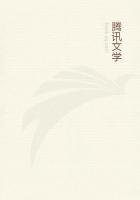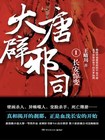Soc. If they had been, there would assuredly have been discerners of characters among us who would have known our future great men; and on their showing we should have adopted them, and when we had got them, we should have kept them in the citadel out of the way of harm, and set a stamp upon them far rather than upon a piece of gold, in order that no one might tamper with them; and when they grew up they would have been useful to the state?
Men. Yes, Socrates, that would have been the right way.
Soc. But if the good are not by nature good, are they made good by instruction?
Men. There appears to be no other alternative, Socrates. On the supposition that virtue is knowledge, there can be no doubt that virtue is taught.
Soc. Yes, indeed; but what if the supposition is erroneous?
Men. I certainly thought just now that we were right.
Soc. Yes, Meno; but a principle which has any soundness should stand firm not only just now, but always.
Men. Well; and why are you so slow of heart to believe that knowledge is virtue?
Soc. I will try and tell you why, Meno. I do not retract the assertion that if virtue is knowledge it may be taught; but I fear that I have some reason in doubting whether virtue is knowledge: for consider now. and say whether virtue, and not only virtue but anything that is taught, must not have teachers and disciples?
Men. Surely.
Soc. And conversely, may not the art of which neither teachers nor disciples exist be assumed to be incapable of being taught?
Men. True; but do you think that there are no teachers of virtue?
Soc. I have certainly often enquired whether there were any, and taken great pains to find them, and have never succeeded; and many have assisted me in the search, and they were the persons whom Ithought the most likely to know. Here at the moment when he is wanted we fortunately have sitting by us Anytus, the very person of whom we should make enquiry; to him then let us repair. In the first Place, he is the son of a wealthy and wise father, Anthemion, who acquired his wealth, not by accident or gift, like Ismenias the Theban (who has recently made himself as rich as Polycrates), but by his own skill and industry, and who is a well-conditioned, modest man, not insolent, or over-bearing, or annoying; moreover, this son of his has received a good education, as the Athenian people certainly appear to think, for they choose him to fill the highest offices. And these are the sort of men from whom you are likely to learn whether there are any teachers of virtue, and who they are. Please, Anytus, to help me and your friend Meno in answering our question, Who are the teachers? Consider the matter thus: If we wanted Meno to be a good physician, to whom should we send him? Should we not send him to the physicians?
Any. Certainly.
Soc. Or if we wanted him to be a good cobbler, should we not send him to the cobblers?
Any. Yes.
Soc. And so forth?
Any. Yes.
Soc. Let me trouble you with one more question. When we say that we should be right in sending him to the physicians if we wanted him to be a physician, do we mean that we should be right in sending him to those who profess the art, rather than to those who do not, and to those who demand payment for teaching the art, and profess to teach it to any one who will come and learn? And if these were our reasons, should we not be right in sending him?
Any. Yes.
Soc. And might not the same be said of flute-playing, and of the other arts? Would a man who wanted to make another a flute-player refuse to send him to those who profess to teach the art for money, and be plaguing other persons to give him instruction, who are not professed teachers and who never had a single disciple in that branch of knowledge which he wishes him to acquire-would not such conduct be the height of folly?
Any. Yes, by Zeus, and of ignorance too.
Soc. Very good. And now you are in a position to advise with me about my friend Meno. He has been telling me, Anytus, that he desires to attain that kind of wisdom and-virtue by which men order the state or the house, and honour their parents, and know when to receive and when to send away citizens and strangers, as a good man should. Now, to whom should he go in order that he may learn this virtue? Does not the previous argument imply clearly that we should send him to those who profess and avouch that they are the common teachers of all Hellas, and are ready to impart instruction to any one who likes, at a fixed price?
Any. Whom do you mean, Socrates?
Soc. You surely know, do you not, Anytus, that these are the people whom mankind call Sophists?
Any. By Heracles, Socrates, forbear! I only hope that no friend or kinsman or acquaintance of mine, whether citizen or stranger, will ever be so mad as to allow himself to be corrupted by them; for they are a manifest pest and corrupting influences to those who have to do with them.
Soc. What, Anytus? Of all the people who profess that they know how to do men good, do you mean to say that these are the only ones who not only do them no good, but positively corrupt those who are entrusted to them, and in return for this disservice have the face to demand money? Indeed, I cannot believe you; for I know of a single man, Protagoras, who made more out of his craft than the illustrious Pheidias, who created such noble works, or any ten other statuaries. How could that A mender of old shoes, or patcher up of clothes, who made the shoes or clothes worse than he received them, could not have remained thirty days undetected, and would very soon have starved; whereas during more than forty years, Protagoras was corrupting all Hellas, and sending his disciples from him worse than he received them, and he was never found out. For, if I am not mistaken,-he was about seventy years old at his death, forty of which were spent in the practice of his profession; and during all that time he had a good reputation, which to this day he retains:

